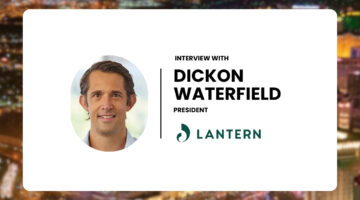Recently, I had the opportunity to participate in MedCity ENGAGE, an interdisciplinary event focused on innovations in patient engagement. As a physician, “interdisciplinary” usually just means having doctors from different specialties present. You can imagine my awe when I found myself at an event where I could interact with persons representing the vast areas of healthcare- from payers to providers to health IT to patients! Never before had I ever been exposed to so many such exciting ideas and innovations all at once!
The lasting impressions for me were hearing how different people were approaching the problems they faced in new and different ways.
Furthermore, I was excited to hear about efforts to form a better healthcare future through a variety of methods. There was a palpable energy among participants that was evident within moments of meeting and speaking with them. As someone interested in seeing virtue central to the practice of medicine, I was gratified to hear words spoken such as empathy, trust, compassion and honesty from many of the speakers regardless of their area of expertise.

How Zelis is Transforming Healthcare Payments with Enterprise AI
How Zelis hopes to solve the healthcare financial system for payers and providers.
However, there were times when I found myself frustrated that I could not engage in more immediate ways into the conversation. There were the times that people seemed comfortable referring to patients as consumers. I understand in a general sense what they were talking about, but I consider this demeaning.
Did I spend years of my life, and hundreds of thousands of dollars so that I could care for consumers? When you come to see physicians like myself, would you rather be called my consumer, rather than my patient? There is a major differences between someone who buys an item from a store (e.g. consumer, customer), and someone who is a patient in need.
There was the time about hearing that the privacy and regulations of HIPAA is aimed at helping patients. However, it seems like in many organizations, the spirit of the law has given way to the fear of the law, with overbearing and oppressive rules impacting the care one can deliver to patients.
Is there any room for forgiveness and grace in a healthcare system that is more and more defined by defense posturing to avoid penalties and fines related to all the rules and regulations?

How Lantern Delivers ROI Through Smarter Healthcare Navigation
Dickon Waterfield discusses why Lantern's navigation works.
There was the instance that I heard one of the patient advocates share about her own tragic story involving the “healthcare system” and how years later she was still suffering from this mistake. I wanted to say that I too suffered through the many patients with tragic stories of the “healthcare system” and how I as their doctor am often the face of this “system” for them.
As a result, I have not only shared in but also borne the brunt of their frustration. This frustration has been delivered through ways such as comments related to how rich we doctors are and how could we charge so much for healthcare to telling me despite the multiple forms we had completed for them, their insurance company continues to deny necessary care.
At times, I feel like the system sets me up to be the enemy within my sacred physician-patient relationships. And the stories continue…
The problems and challenges in healthcare are immense, and the stakes involve everything from our nation’s financial viability, to our communities’ overall health, to whether a patient will live or die. Perhaps my view on cancer best summarizes how I feel regarding healthcare delivery in the US. I do not believe we will ever eradicate cancer from this world. It is just too complex, diverse, and multifarious. However, I may be able to eradicate your cancer if you happen to be lying before me as a patient. It is my commitment to fight with you, using the skills, knowledge, and tools I have obtained and the great healthcare team I am able to work with, to do just that. Furthermore to do this with the dignity entitled to you as my fellow human being.
Likewise, I do not believe we will ever eradicate all the problems from healthcare in the US. It is just too complex, diverse, and multifarious. However, I may be able to solve and overcome this problem that lies before me. It is my commitment to fight to solve this problem, using the skills, knowledge, and tools I have obtained, and the great team I am able to work with to aim to do just that.
After attending the MedCity ENGAGE event, I am uplifted that I got to meet others who are fighting the challenges that lie before them with this same conviction.
Dr. Walter Lee spoke on the MedCity ENGAGE panel “Engagement From The Ground Up: Navigating the Mandates of New Healthcare.”
Dr. Walter Lee is Associate Professor of Otolaryngology – Head and Neck Surgery at Duke University Medical Center and Staff Surgeon at the Durham VA Medical Center in Durham North Carolina. He holds an undergraduate degree in philosophy from the George Washington University where he also attended medical school. He did his residency and subsequent fellowship in head and neck cancer research at the Cleveland Clinic. He currently serves as Co-Director of the Head and Neck Program in the Duke Cancer Institute. He has a diverse research portfolio that includes global health and biotechnology, immunotherapy, medical education, and virtue-based leadership development.
The views expressed in this article are those of the author(s) and do not necessarily represent the views of the Department of Veterans Affairs or the United States government.
This post appears through the MedCity Influencers program. Anyone can publish their perspective on business and innovation in healthcare on MedCity News through MedCity Influencers. Click here to find out how.






